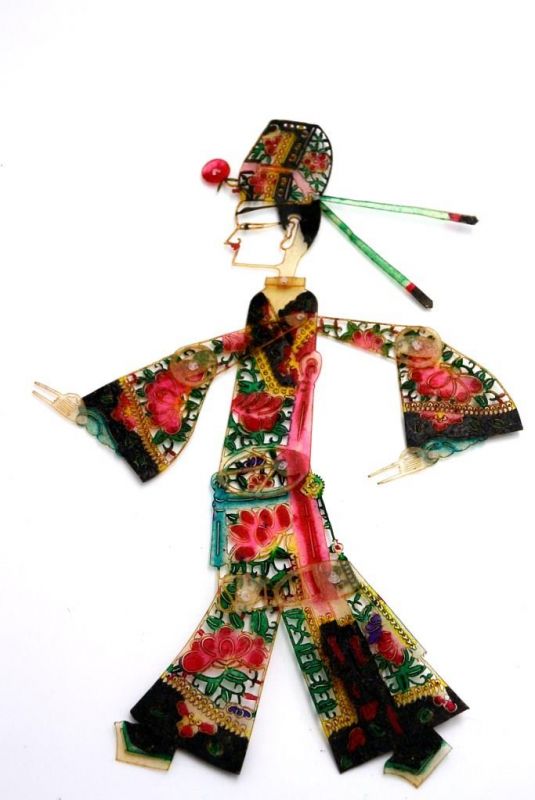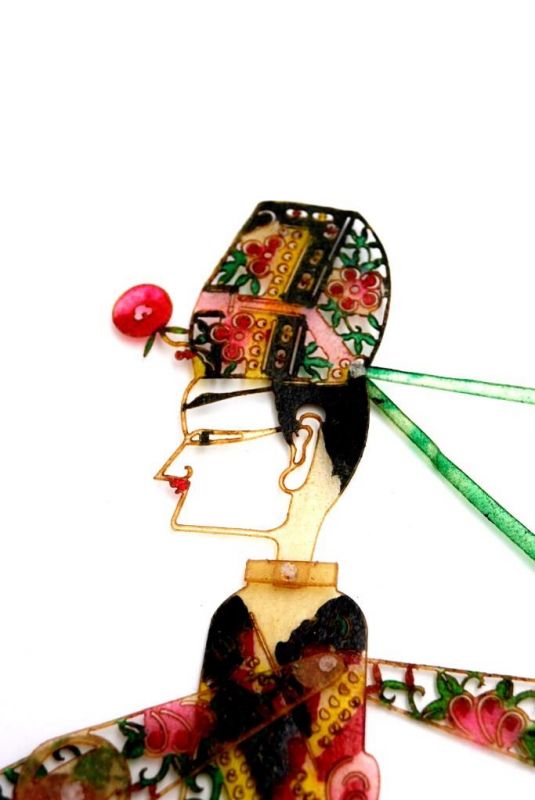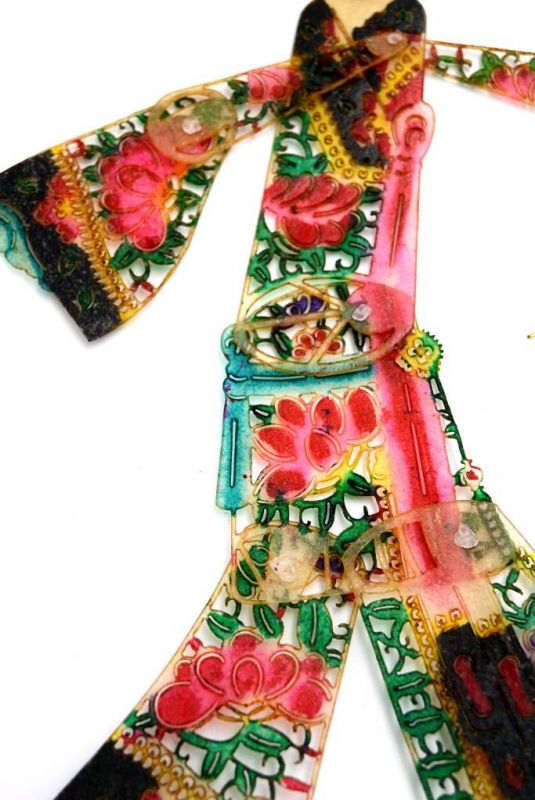Chinese Theater - Puppet 23cm - Man - Multicolored
The Chinese shadow theater
Shadow theater is a traditional and popular show in China. It was inscribed in 2011 on the list of intangible cultural heritage of humanity by UNESCO. This show consists of projecting shadows created by puppets onto a screen thanks to a light beam. It was in China that shadow theater was invented, then this show spread to other countries in the world.
The puppets of the Chinese shadow theater
The puppets of the Chinese shadow theater are called pi ying, and the oldest documents attest that they were created at least two thousand years ago. They are handcrafted and traditional. The Piying are made from a translucent and rigid parchment that craftsman coated with sophora oil. The leather used most often is lacquered and finely colored donkey skin, but some Chinese shadow puppets are created from sheepskin or calfskin.
These figurines are delicately cut and openwork by craftsmen to obtain the desired shape. They are articulated and animated thanks to wooden sticks or metal long and thin. During the show, they are placed behind a white silk screen and are lit from behind to project their shadow onto the screen. The person handling the puppet also lends his voice to his character. Today, pi ying is still made by craftsmen who
Here you will find a PiYing puppet made from calf leather, in a traditional way.
The history of shadow theater
China is the true cradle of shadow theater. Indeed, it is in this country that appeared this type of spectacle, during antiquity, there are more than 2000 years. Writings attest to this, and a Chinese legend attributes the creation of leather puppets to Liu Bang, the leader of the Han army, when he was besieged in a fortress by the Chu army. He had the idea of having a large number of characters made and placed on top of the walls in order to make the enemy believe that he possessed an imposing army. This ruse worked, and the Chu army retreated.
The traditional Chinese puppets of the shadow theater are thirty centimeters high in general. They are leather, are colored and are composed of eight to twelve different pieces. Their heads are removable, which makes it easy to change their outfits. When projected on the screen thanks to the lighting, they are bright and colorful. Traditionally, the screen is a canvas and lighting is provided by an oil lamp. This show also includes a small orchestra that supports the staging.
Shadow puppetry troops are generally composed of seven to nine people, and small troupes are made up of two to five puppeteers. These shows are played for various occasions such as weddings, funerals, entertainment, or religious rites. We can distinguish the professional puppeteers who live from these shows and the amateur puppeteers who only occasionally occur when agricultural activity slows down. The know-how of shadow puppeteers is transmitted from generation to generation within Chinese families or within the troops themselves.
Since its beginnings, the Chinese shadow theater has been transmitting the ancestral cultural values of the country to its spectators. It conveys information from social beliefs, local customs and oral traditions of China. This show makes it possible to diffuse among the population of the knowledge and to entertain it, it is very popular notably with the young people. The ancient repertoire featured traditional religious legends and legends, as well as dramas between the gods or stories of magic. Nowadays, the plays performed in Chinese shadow theaters are essentially from local folklore.
In the 13th century, Mongolian soldiers who took part in the conquest of China entertained themselves by watching Chinese shadow plays. The Mongols then produced their own shows, which they exported to the lands they conquered, including the Ottoman Empire and the Western Territories. French missionaries, returning from China, presented Chinese shadow theater performances in Paris and Marseilles during the 18th century. These shows were known at that time a great success in France and in several European countries.
Currently, in China, traditional shadow theater is still popular with Chinese people. However, some artists are now using modern equipment to stage their shows, such as lighting, dyes and plastics to make puppets. Some also use computers to control projected images and add animations to the show. Nevertheless, shows using traditional equipment are still very popular with the Chinese people.anmoins, les spectacles utilisant le matériel traditionnel sont toujours très prisés par la population chinoise.
Chinese Puppets - Shadow play - Piying Xi Shadow Puppet Theater
- Piying is a kind of shadow puppet show popular in North China. The puppets used in the show are cut out of leather.
- Shadow play or also known as shadow puppetry is an ancient form of storytelling and entertainment which uses flat articulated figures (shadow puppets) to create the impression of moving humans and other three-dimensional objects.
- At the begining the puppet shows were performed Emperor and Empress in the imperial courts.
- Over the time, the first puppets (burial items) as evolved into the new puppets for entertrainment during festive ocassions.
- This Chinese Puppet is an original item which is made of leather.
- This statue is a very beautiful decoration item. (also for the collectors).















